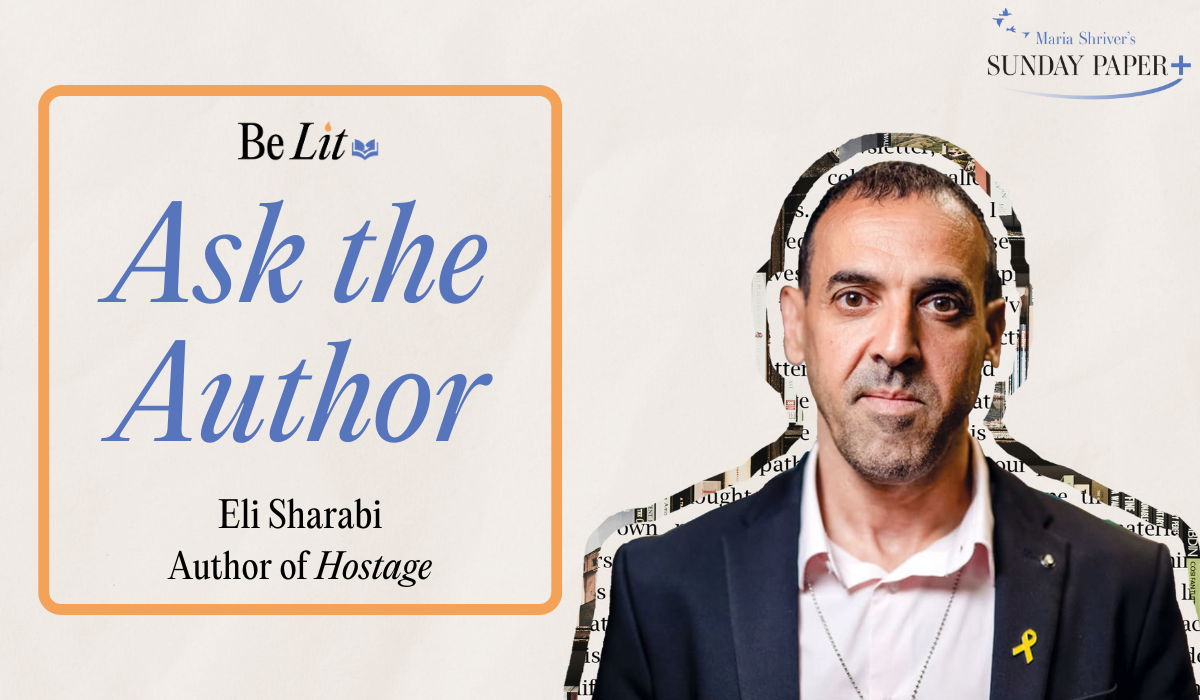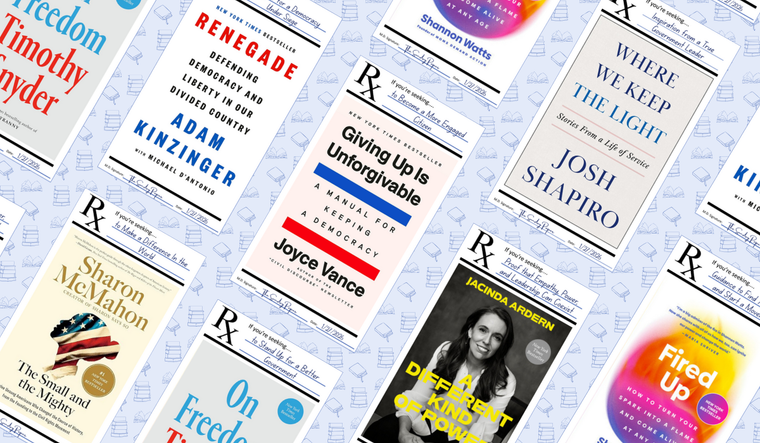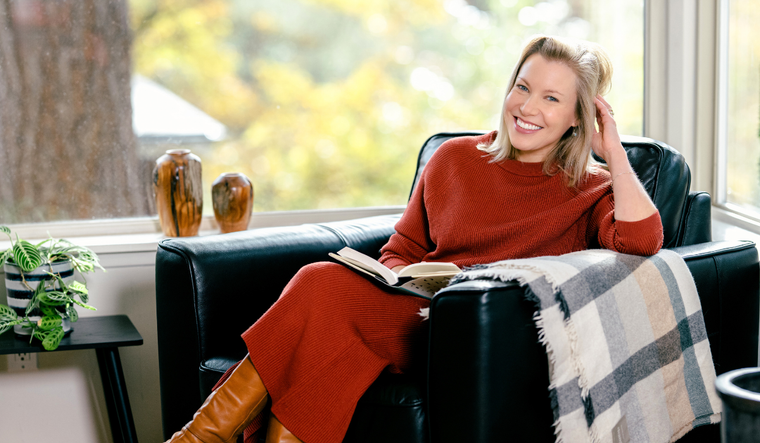Ask the Author: An Exclusive Q&A with Eli Sharabi
On the morning of October 7th, 2023, Eli Sharabi, his wife, and their 2 daughters awoke to missile alerts at their home on Kibbutz Be'eri, just miles from the border separating Israel and Gaza. For hours they sat in their safe room before Hamas terrorists eventually broke in, separating Eli from his family, kidnapping him to Gaza, where he would never see them again. Sharabi recounts the harrowing story of his 491 days in captivity, all while never losing hope—hope of freedom, hope of being reunited with his family, and hope for the future. Even in the darkest moments, plunged underground in starvation, illness, abuse, and torture, Eli’s accounts can offer us a way forward, a guidebook in seeking the light when none seems to be possible.
A CONVERSATION WITH ELI SHARABI
Even in so much darkness, Hostage is a story filled with hope. How did you remain so hopeful, and why did you want to offer so much hope to the world?
First of all, I wanted to supply hope to the other hostages in captivity. That is the most important thing when you're in this situation, between life and death. Every day, every moment, I thought that waking up and crying or being desperate will not give me anything good. So I chose to be optimistic. I chose to hold on to hope. And I really, really believed it's only a matter of time until we will be released one day. I know the Israeli spirit. I know the values and I knew that nobody was going to give up until we were out of Hamas captivity.
In the book, you say you go from being regular Eli to Survivor Eli. Now that you have returned home, have you shed that persona or are you still “Survivor Eli”?
Some people who know me may think I was a survivor all my life. When I was a kid in southern Tel Aviv and moved on my own at the age of 16 to a Kibbutz, a really, really close community with kids that don't think somebody from outside should be there. And I survived that. And since then I survived in a very competitive male group managing the kibbutz and was always younger. So there was probably a part of me that was always a survivor.
But when I got in the Red Cross car on February 8th, 2025, when Hamas transferred me to the Red Cross, I felt all the tension and all the stress I had been holding for 491 days since October 7th. Something broke there, and I started to cry a little bit, for one minute, and waited till they passed me to IDF hands. I, of course, expected my wife and my daughters to be running towards me. And that's what I imagined for 491 days.
In Hostage you put us in the tunnels with you, writing a very real and honest testimonial of your experience being held as a hostage for 491 days. How important is it for you that not just Jewish people are reading this so that more people are aware of the atrocities?
It's very important the world knows what happened on October 7th and the horrors committed by the Hamas terrorists. We’re not talking about reasonable people, but really, really bad animals, that are willing to murder anything that they see – raping women and children, burning houses, kidnapping, shooting old people in their bed. Nobody should forget about October 7th and what really happened, and how this war started. I think it was after my speech at the UN, in the Security Council, that people approached me and said, well, you have to write your testimony, all these details. People should know. And when I came back to Israel, I sat with myself and thought about it. And actually, this process, writing this book, was very therapeutic for me to talk about it and not just have my memory stay with myself. Since then, loads of hostages did the same, sharing their story about the experience in captivity. Each one of us has our own point of view about what happened, our own experience with other people. So it's very important to talk about it.
You are very clear in the book that the people who held you are horrible people. But it is not black and white, that you had to find ways to hold nuance for them in order to survive. How did you do that?
The moment I was kidnapped, I was with these people 24/7. And it doesn't really matter if they humiliate you every day or use violence against you and starve you or threaten you all the time, pointing guns at you. If you want to survive, you need to analyze them all the time and figure out what is motivating them and how you can talk with someone about one thing and the other one about other things. And you need to be very careful. It's a very delicate relationship. You are actually an actor in their shows, and they are controlling that show. They control the permission for you to go to the bathroom or drink or eat or breathe or speak. So you're an actor, and you act all the time. You act 24/7, but you analyze them all the time. You're listening to them, and you have a relationship with them. And it’s this relationship that saved me more than one time.
There is a line that Hersh Goldberg-Polin says to you, “He who has a why, can bear any how.” And you write that this saying feels like a gift. It's almost like you give that gift to all of us in the book. This world has become so fractured and bifurcated. I imagine you did not expect the book to be coming out in a moment where the hostages might be released at any moment, when peace might be upon us. But how do you hope this book might be received in the midst of all of this? And who do you hope, reads this book?
The book, when it first came out in Israel four months ago, was the fastest bestseller ever in the history of Israel. I'm very happy and very surprised about that. In less than four months, it has sold more than 100,000 copies. I'm very grateful for the readers and the buyers. Now as it launches in the US, I wonder, who will be interested in this book in the United States, except for the Jewish community? I’m skeptical about who's going to buy this book in the United States. I hope somebody will buy it, not just for me, but to continue the awareness of the hostages. Nobody should forget them. Nobody should forget what happened on October 7th. And that's my goal with this book.
With news that the 48 remaining hostages might be returned, how are you feeling? I know you are waiting for the return of your brother’s body, as well as the return of Alon Ohel, who you were held with for most of your captivity.
I'm waiting for all the 48 remaining hostages, and I'm quite sure in the next few weeks, I believe in a week or two, all this nightmare will finish. 20 of them are probably alive. And the other 28 bodies, among them is my brother, Yossi. And of course we're waiting for him. His wife and his daughters need a grave to cry on. All of us need a grave to cry on. They need closure if they want to keep going with their lives, to move on.
About Alon, we planned a lot of things to do together when he’s going to be released, and I'm quite sure we will do that. Of course, I'll let him time with his family and to recover, and it will be a long process for him. But I'm really, really waiting for him. I just came back from Thailand, from places that he told me about. I dived there last week, and I remembered him, and I'm just waiting for him to go together again and to dive and to travel with him to other places that we're planning. We have lots of plans. I don't hope he's alive. I'm sure he's alive. I'm sure he has all the tools to survive this hell. I left him with these tools, and I'm really, really confident in his ability to survive.
After one minute, we started to speak and I understood who I was talking with, that he has the same values as me, almost the same DNA, the same family values. He is a great kid, a talented pianist, such a delicate soul, so it was very easy to be with him. It was my pleasure to guide him with lots of things. But being the role as a father for him helped me to survive and to find meaning in captivity. So we helped each other. It wasn't one direction. I was blessed to meet him, and I'm really waiting for him.
What is the thing that you hope people can take away from your book?
I think the main thing is that you have the choice all the time in any junction in your life. The situation is not always in your control. I didn't choose to be kidnapped. I didn't choose what happened to us on October 7th. But for 491 days, I chose how to react to things and if I wanted to listen to the captors or not. I could resist the kidnapping, and probably they would have shot me, but I chose to go with them. I chose to get into the car. I chose to speak with them one day or the other. I chose a lot of things. I chose to climb down the tunnel. So a choice is always in your hand. To choose to stay optimistic and to find the light in all this darkness. In all your life, it doesn't really matter if it's captivity or a really bad thing that is happening to you, there's light somewhere and you just need to look for it.
Please note that we may receive affiliate commissions from the sales of linked products.




